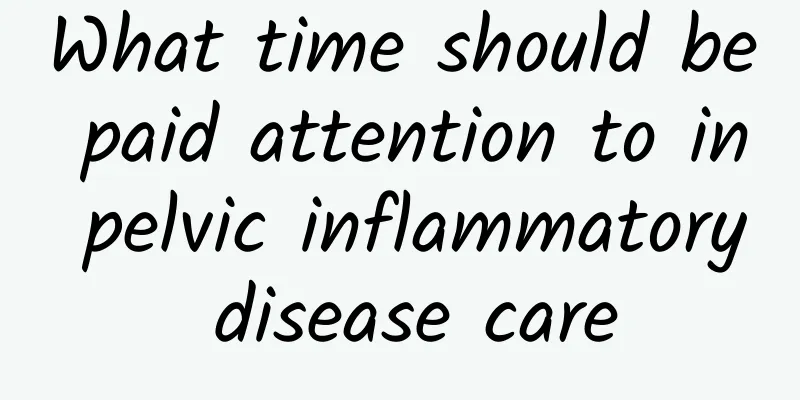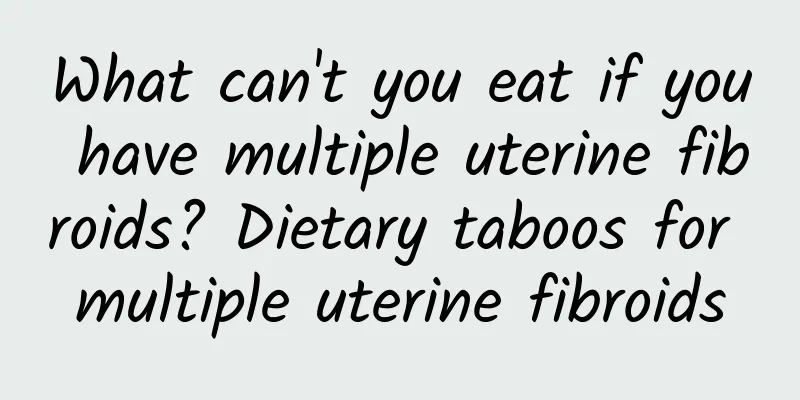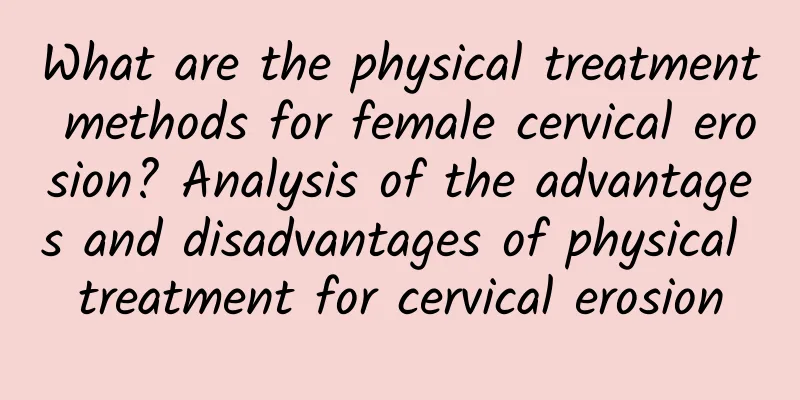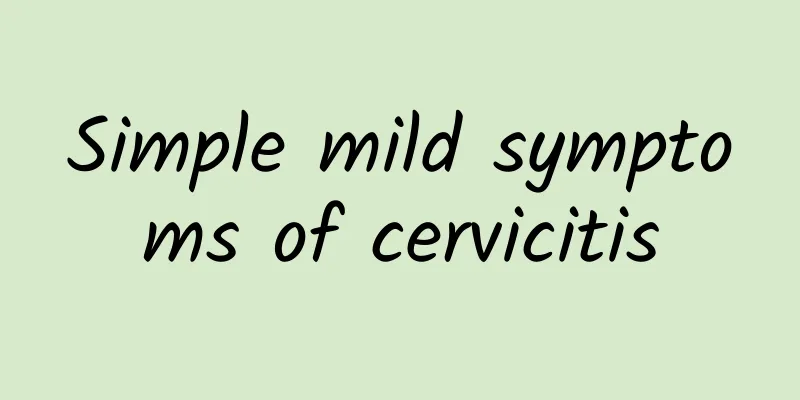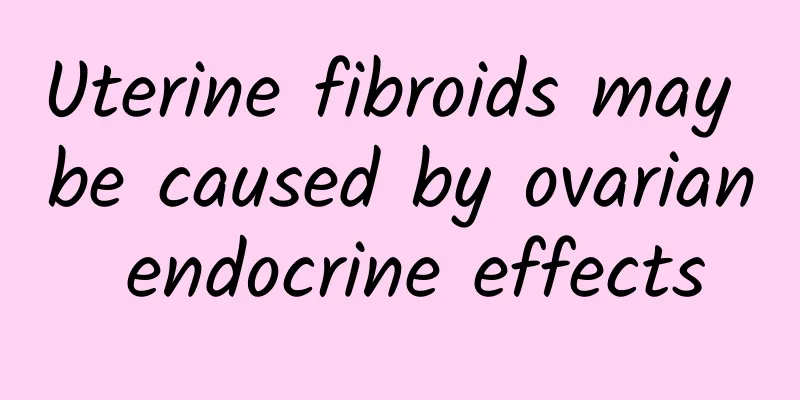How to perform surgery for uterine fibroids? Postoperative care measures for uterine fibroids
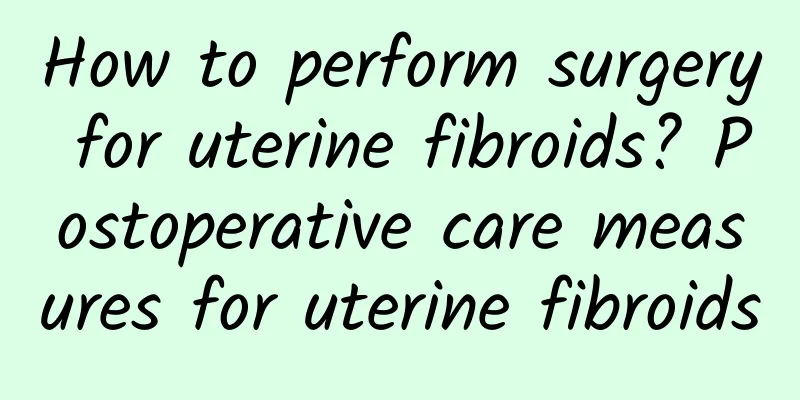
|
Uterine fibroids are usually treated with surgery. Surgical treatment of uterine fibroids is not suitable for all patients with uterine fibroids. If the total menstrual volume is greater than 80 ml or the menstrual period exceeds 7 days, it is medically called menorrhagia. According to the calculation that each sanitary napkin collects an average of 5 to 10 ml of menstrual blood, if more than one and a half packs of sanitary napkins (15 pieces) are needed for each menstrual period, there may be menorrhagia or obvious anemia, and the patient should consider surgical treatment. When it comes to uterine fibroid surgery, many patients also think that all hysterectomies are correct. Surgical treatment and postoperative care measures for uterine fibroids. In fact, there are multiple ways to remove or reduce fibroids without removing the uterus. It can be done by surgery or medication. This operation can preserve the uterus, which is currently the most widely used conservative surgery. Through this operation, more than 90% of patients can relieve the symptoms of excessive menstruation. With the popularity of laparoscopy and minimally invasive surgery, more and more uterine fibroids can be removed by "punching a small hole" or vaginal resection, and patients can quickly return to normal work and life. Uterine fibroids are the most common benign gynecological tumors in women. Uterine fibroids are generally treated with myomectomy. Since it is a surgical treatment, some symptoms will inevitably occur after myomectomy. Surgical treatment and postoperative care measures for uterine fibroids. After vaginal bleeding or total hysterectomy, a small amount of yellow discharge or bloody discharge may appear within 10-15 days. It can be observed for a few days and then disappear naturally. There is no need to worry about these normal symptoms after myomectomy. However, if there is purulent discharge after myomectomy, it may be because of infection or vaginitis at the stump of the vaginal incision. You need to go to a regular hospital for diagnosis and treatment to find out the cause and treat it in time. Therefore, postoperative care is essential. The surgical treatment and postoperative care measures for uterine fibroids are crucial. To prevent excessive fatigue, keep the vulva clean and dry, wear wide underwear, avoid getting pregnant again, and in addition, eat a light diet and avoid eating chili peppers. Experts will give complete advice. |
>>: What should I do if my menstrual flow is small after uterine fibroid surgery?
Recommend
What causes pain in the lower left side of the abdomen?
When women experience pain in the left lower abdo...
The dangers of medical abortion
Compared with other artificial abortion methods, ...
What are the traditional Chinese medicine treatments for uterine fibroids?
Uterine fibroids are the most common benign tumor...
How much do you know about the factors that cause cervicitis?
Cervicitis has many manifestations. The clinical ...
How to check after suffering from adnexitis?
How to check if you have adnexitis? This is a que...
Can cervical erosion be cured? Different degrees of cervical erosion require symptomatic treatment
Cervical erosion can be divided into mild, modera...
What are the clinical manifestations of vulvar leukoplakia?
Did you know that vulvar leukoplakia is closely r...
What to do if your vaginal discharge is abnormally yellow
Abnormal yellow vaginal discharge may be caused b...
Expert advice: Several effective nursing methods for dysmenorrhea
Women often feel uncomfortable before and after m...
Advances in Nursing Care for Threatened Abortion
Threatened abortion is not unfamiliar to women li...
Women should learn how to care for pelvic inflammatory disease
Among all kinds of gynecological inflammation dis...
How to bring your period forward You can do this
If you don't control your endocrine system in...
Will Qi and blood imbalance lead to irregular menstruation? Early treatment is recommended
Qi and blood imbalance can lead to menstrual diso...
The harm of cervical erosion to women
Is cervical erosion harmful? Many people only hav...
Symptoms of three different types of pelvic inflammatory disease
Many women have a certain understanding of the sy...

